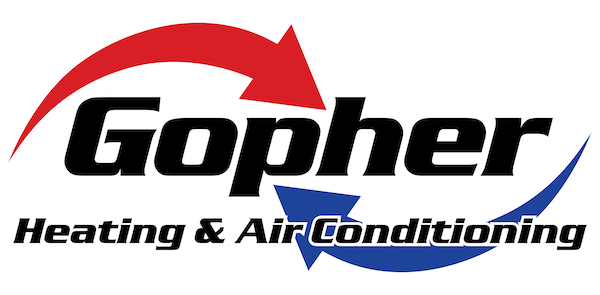
If you’re questioning whether your Savage home has unhealthy indoor air quality (IAQ), it probably does.
We are indoors a lot. In reality, we’re inside up to 90% of the time, according to the U.S. Environmental Protection Agency. And the air inside houses could be 2–5 times worse than outdoors, which can create long-term health issues.
Most Common Sources of Poor IAQ
We’ve made a list of the most frequent sources of poor IAQ, the issues they make and how you can take care of these indoor air pollutants. If you’re worried about the air inside your residence, we advise talking with a professional like Gopher Heating and Air Conditioning about which solutions are a good fit for your house.
Volatile Organic Compounds
Volatile organic compounds, or VOCs, are vapors released by everyday household items.
They’re found in paint and stains in addition to:
- Furniture
- Carpet
- Building materials
- Cleaning products
- Cosmetics
- Air fresheners
- Candles
When these vapors accumulate inside, they might irritate your eyes, nose and throat. They may also lead to headaches and nausea. Regardless of whether your home is in a rural or industrial space, an EPA study found indoor levels of these pollutants can be 2–5 times greater than the air outside.
Always follow the manufacturer’s instructions when using paint or cleaning supplies. Unlatching a window can help vapors dissipate faster.
Air purification systems can also help. This unit partners with your heating and cooling unit to freshen indoor air. When hunting for one, ensure it’s specifically designed to eradicate VOCs.
Dust and Pet Dander
Dust and pet dander can irritate health problems like asthma and allergies, especially when it continually gets redistributed by your home’s comfort system. While you can vacuum more regularly and get an improved air filter, an air filtration system could be a better match.
This solution hooks to your heating and cooling equipment to deliver strong filtration. Some models provide hospital-level filtration for eliminating particles and bioaerosols.
Persistent Odors
Newer houses are securely sealed to boost energy efficiency. While this is great for your energy bill, it’s not ideal for your IAQ.
Stale odors can stay around for a greater amount of time because your house is pulling in reduced fresh air. As keeping your windows open throughout the year isn’t a possibility, here are two ways you can make your indoor air smell better.
An air purification system is installed in your HVAC system to eliminate odors before they recirculate. Look for one with a carbon filter and the ability to break down harmful VOCs. These units can also help keep your family healthy by eliminating most bacteria and common allergy triggers like pollen and mold spores.
A ventilation system removes stale indoor air and substitutes it with crisp outdoor air. There are two types of equipment (heat recovery and energy recovery), so ask our professionals for more information on which kind is ideal for your residence.
Uneven Humidity
It’s critical your home’s humidity remains even. Air that’s too moist can cause mold, while dry air can cause respiratory concerns.
Our pros suggest 40–50% for top comfort. To keep yours steady, think over getting a whole-home humidifier or whole-home dehumidifier with your heating and cooling equipment.
Rather than having to drag a humidifier from room to room, this equipment delivers consistent humidity throughout your house.
Carbon Monoxide
Carbon monoxide is colorless gas you can’t smell. It occurs when there’s insufficient combustion in fuel-burning units, like gas heating systems, water heaters or fireplaces.
It creates a serious health risk. In small levels, it can lead to flu-like ailments like headaches and nausea. It can be deadly in heavy amounts.
We advise yearly furnace maintenance to make sure your equipment is working properly. This job allows our specialists to pinpoint problems before they start, including malfunctions that can lead to carbon monoxide leaks.
The best method to keep your house free of carbon monoxide is to get detectors. These alarms need to be on all floors by bedrooms and living areas.
Improve Your Home’s Air Quality with the Gopher Heating and Air Conditioning Specialists
Aware that your home has bad air quality but not sure how to enhance it? Or unsure which solution is right for you? Give our kind HVAC experts a call at 952-373-0377 or contact us online now. With free estimates and expert assistance, we’ll help you locate the best solution for your home and budget.



